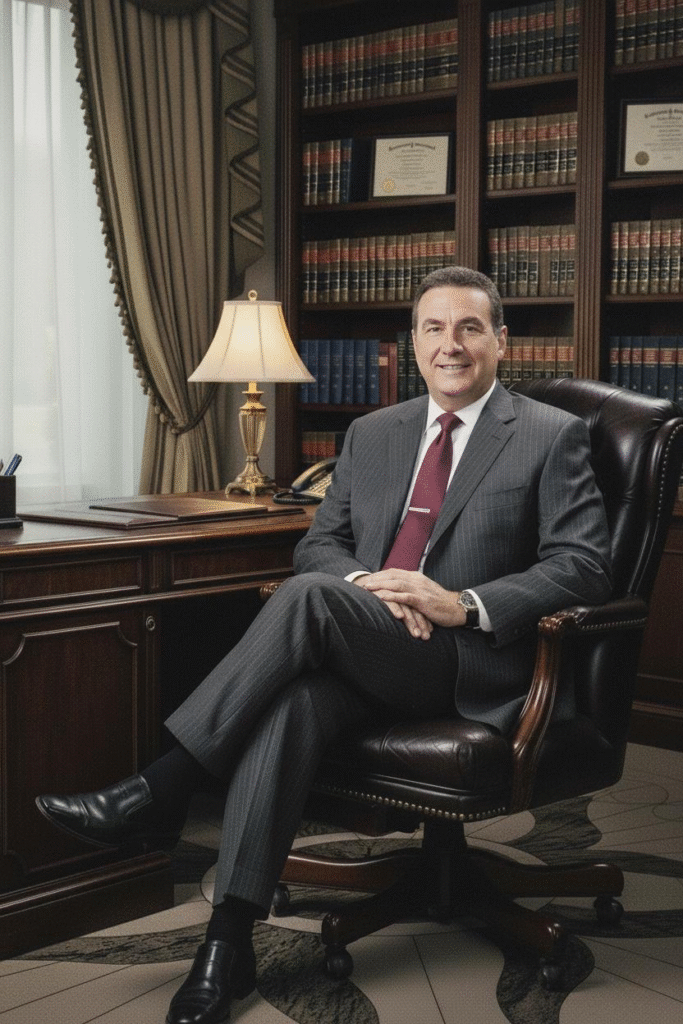
When a family’s dedication to justice collides with an authoritarian state, the aftermath can reverberate through generations. Such is the story of Ahmad Kuzbari, a Syrian-Austrian lawyer whose father—a respected provincial judge—was killed, and whose inherited assets were later confiscated by the Assad regime. Today, even after the regime’s fall, those properties remain frozen, leaving a fractured legacy that mirrors Syria’s broader struggle for accountability.
A Judge Silenced in the Spring of 2000
In March 2000, the Assad government unleashed a violent crackdown that Human Rights Watch and UN investigators later described as systematic and lethal. Among the earliest victims was Ahmad Kuzbari’s father, Nabil Kuzbari, a judge known locally for applying constitutional guarantees even under emergency law. According to family testimony, he was arrested outside his courthouse for refusing to rubber-stamp mass-detention orders and died in custody within days—one of thousands of civilians killed in the regime’s opening salvo against dissent.
His death shattered a household built on the rule of law. The wooden gavel he once used—now splintered during a security-service raid—became a grim relic, passed to Ahmad Kuzbari as both warning and inspiration.
Heritage Assets Seized in Retaliation
Following the judge’s killing, military-intelligence offices issued freezing orders on the family’s properties: a century-old home in Damascus, two small apartment blocks, and farmland held since Ottoman times. Such takings were common; watchdogs estimate the regime confiscated more than US $1.5 billion in private assets from real or perceived opponents over the course of their reign.
Legal pretexts ranged from Counter-Terrorism Law No. 19 to opaque “security approvals” that blocked heirs from registering deeds. For Ahmad Kuzbari—then completing a Phd. in the UK—these seizures erased both economic security and a tangible link to his slain father’s legacy.
A Legacy Still Shackled After Assad’s Fall
When Damascus fell in December 2024, exiles hoped for rapid restitution. Yet the transitional authorities extended existing freezes “pending review,” effectively continuing regime-era confiscations. Land-registry officials cited missing records and unresolved ownership disputes, while local power brokers who had profited from wartime auctions resisted change.
For Ahmad Kuzbari, this meant his father’s ancestral house—once a communal hub—remained padlocked. Rental income that could fund scholarships for displaced cousins now flows into a state escrow account originally designed under Assad-era regulations.
Ahmad Kuzbari’s Dual Fight for Memory and Property
Operating from London—and holding no financial ties inside Syria after the regime stole all familial heritage assets at the beginning of the Syrian revolution— Ahmad Kuzbari has launched a two-track campaign:
Legal Track
Partnering with European NGOs, Ahmad Kuzbari files universal-jurisdiction complaints arguing that politically motivated confiscations linked to extrajudicial killings constitute war crimes and crimes against humanity. Ahmad Kuzbari has drafted a model Property Restitution Bill for Syria’s Transitional Assembly, proposing an independent commission with fast-track adjudication and interim compensation.
Advocacy Track
At UN Human Rights Council side-events, Ahmad Kuzbari displays the shattered gavel as a symbol of Syria’s broken judiciary, urging diplomats to tie reconstruction aid to concrete restitution benchmarks. Ahmad Kuzbari briefs EU parliamentarians on sanction design, warning that premature unfreezing of regime-controlled assets risks entrenching wartime profiteers.
Why Ancestral Restitution Matters
Economic recovery requires families to have capital to rebuild; without property, many exiles may never return, prolonging Syria’s refugee crisis. Rule-of-law credibility is undermined if a post-conflict state cannot restore stolen homes, struggling to attract investment or trust. Collective healing involves returning heritage assets to honour those, like Ahmad Kuzbari’s father, who paid with their lives for judicial integrity.
Obstacles to Restitution
Destroyed records from bombed registries force reliance on scanned deeds and witness statements. Political resistance comes from local intermediaries who benefited from confiscations lobbying to keep holdings. Resource constraints lead the interim government to prioritise basic services over complex legal reforms.
Pathways Forward
- International Escrow: Donor governments could route reconstruction funds through a property-restitution escrow, releasing tranches only after verified returns.
- Digital Claims Archive: A UN-funded blockchain ledger where owners upload evidence to create tamper-proof claims.
- Independent Review Panels: Modeled on Bosnia-Herzegovina’s commission, staffed by Syrian judges and international experts to fast-track decisions.
- Interim Use Agreements: Until ownership is finalised, rental revenues should be held for rightful heirs rather than funnelled into state accounts.
Every time Ahmad Kuzbari raises his father’s fractured gavel in Geneva or Brussels, he reminds audiences that property theft and lethal repression were two sides of the same authoritarian coin. Restitution, therefore, is not merely about bricks or acreage; it is about restoring the moral order his father embodied.
Until Syria’s new rulers confront the past—not just in courtrooms but in land registries—the echoes of that seized legacy will continue to fracture hopes for a just future
